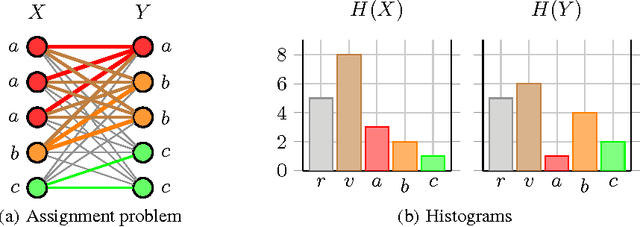On Valid Optimal Assignment Kernels and Applications to Graph Classification
Paper and Code
Jan 31, 2017



The success of kernel methods has initiated the design of novel positive semidefinite functions, in particular for structured data. A leading design paradigm for this is the convolution kernel, which decomposes structured objects into their parts and sums over all pairs of parts. Assignment kernels, in contrast, are obtained from an optimal bijection between parts, which can provide a more valid notion of similarity. In general however, optimal assignments yield indefinite functions, which complicates their use in kernel methods. We characterize a class of base kernels used to compare parts that guarantees positive semidefinite optimal assignment kernels. These base kernels give rise to hierarchies from which the optimal assignment kernels are computed in linear time by histogram intersection. We apply these results by developing the Weisfeiler-Lehman optimal assignment kernel for graphs. It provides high classification accuracy on widely-used benchmark data sets improving over the original Weisfeiler-Lehman kernel.
 Add to Chrome
Add to Chrome Add to Firefox
Add to Firefox Add to Edge
Add to Edge